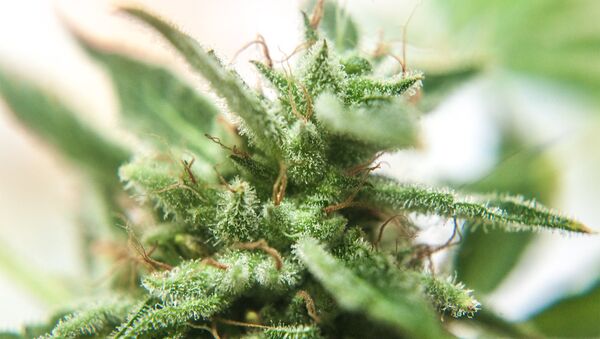Despite three states green-lighting the sale of marijuana for recreational use and 20 more allowing medical marijuana dispensaries, the US federal government still defines the drug as a Schedule I narcotic, meaning that it has "no currently accepted medical use and a high potential for abuse."Drugs in this category are considered "the most dangerous drugs", with "potentially severe psychological or physical dependence."
As a result, despite growing acceptance of recreational marijuana use, US banks are not allowed to approve loans to marijuana businesses, issue them company bank accounts or provide them with corporate credit cards.
"Employees and customers in those businesses are just crossing their fingers that nobody comes in and robs the place," Riffle said.
Referring to marijuana businesses in several states keeping their profits in cash, he described the issue as "the crazy, crazy, crazy situation," which he said even becomes "ludicrous".
"We've seen dispensaries that pay their taxes by putting the cash on to a pallet and then loading it into a Brinks truck and then driving it over to the state or county auditor's office," Riffled said.
He expressed hope that the Obama Administration will attempt to resolve the problem, especially given that legal marijuana sales in such states as Colorado and Washington have surpassed revenue expectations in the first few years of sales.
Riffle said that the 2016 presidential election candidates, as well as two major US parties remains at odds over marijuana legalization, which some predict may spread to several other US states in the future.
"We spend billions of dollars every year on marijuana prohibition and it is not having any impact," Riffle concluded.


